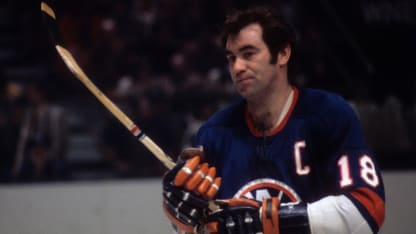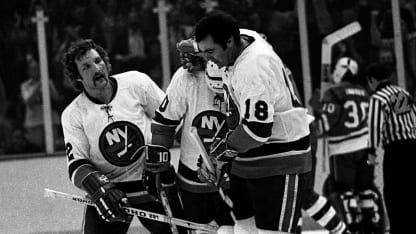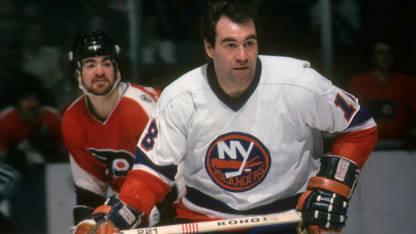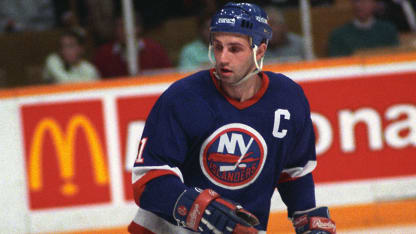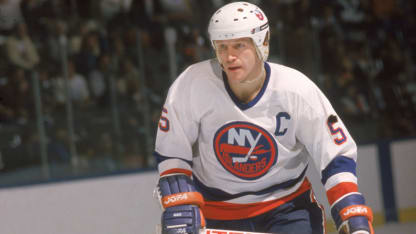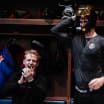If there was a single type of individual the Islanders required as they battled through their inaugural season, it was one who already had experienced the National Hockey League wars, both losing and winning.
The club's first captain had to instill confidence in the young players around him while earning respect based on his past accomplishments as well as his roll-up-the-sleeves work ethic.
That man was Ed Westfall, and his life as a big-leaguer was a study in highs and lows that blended into the key word, experience.
The native of Belleville, Ontario was a hockey man through and through.
By the time I watched Ed selected by General Manager Bill Torrey in the 1972 expansion draft, I had known Ed very well. He already had almost a decade of big-league play under his belt both as a defenseman and a forward.
He broke in with a lowly Bruins team and worked his way into the lineup as an indispensable regular. I admired him nurturing youngsters such as Bobby Orr and Derek Sanderson into major stars.
Through his nine years with Boston, Westfall paced the Beantowners to a pair of Stanley Cup wins in 1970 and 1972. He had now become a peerless defensive forward with ever-challenging assignments.
One of Westfall's on-ice responsibilities as a Bruin included guarding against sharpshooters like Bobby Hull and Stan Mikita of the high-scoring Chicago Blackhawks.
Those who had seen Eddie's work during that era insist he was as good a defensive forward as Montreal's Bob Gainey, who's in the Hockey Hall of Fame. Many believe Westfall should be hockey's Pantheon as well.
"Eddie was one of the all-time greats," said Derek Sanderson, his long-time Boston penalty-killing partner, "When I came up, he was the established veteran and I was the rookie. He was supposed to take care of me, be my roomie and keep me under his wing. And he did. He taught me the ropes, and he was a gentleman -- one of the classiest guys in the game."

